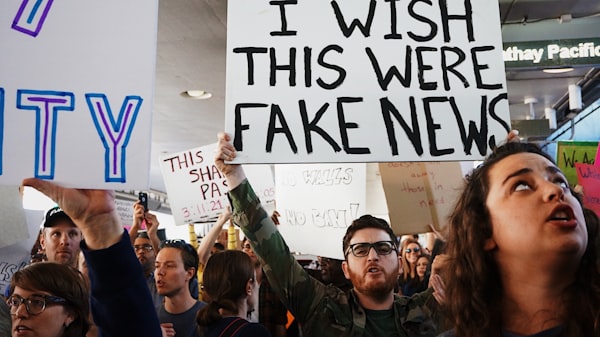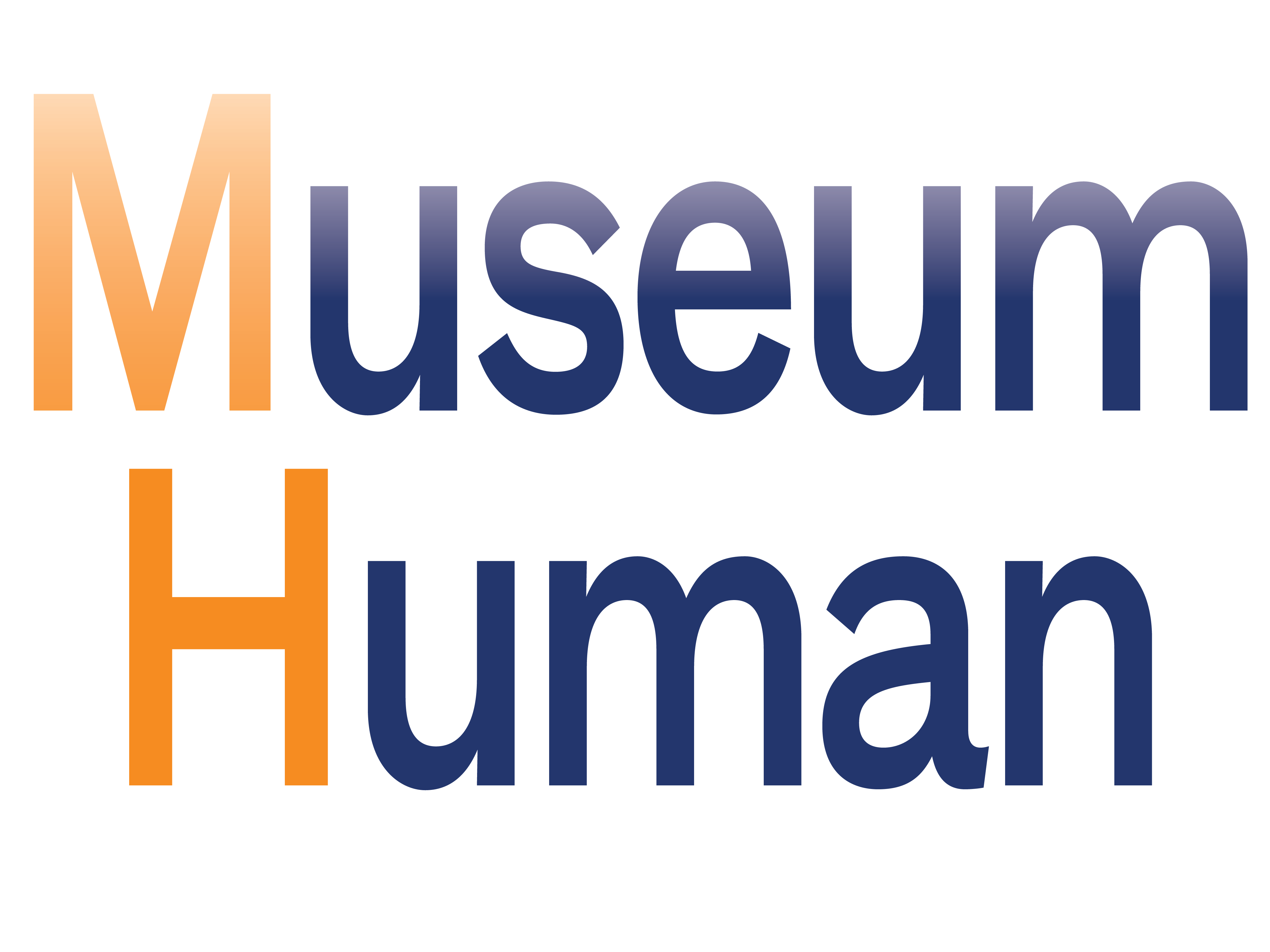
All the news that isn't can come from anywhere.
If you're reading this and not a subscriber to Museum Human, consider scrolling to the bottom and signing up now—it's free and is the only way to read the site's longer weekly post on the organizational culture of cultural organizations and special events only for subscribers.
I was inspired to put together today's Links by a single day's Medium digest, which seemed to have a lot of the-facts-are-otherwise stories.
Before we dive in, I'd like to start with a callback to last week's LOTW: a reader responded to this Twitter thread on QR codes and museum labels with this helpful link about QR codes and accessibility. Thank you—and to all readers, the Contact Us link at the bottom of the page really works!
Now, on to this week's links …
One: The high-cost-of-higher-education narrative usually misses the point, as Bryan Alexander notes in this Medium piece. Museum workers should take note because …
Two: Billionaires don't create jobs any more than they save the funding-dilemma day in the long run, as Jared A. Brock writes in Medium. Museum workers should take note because some of them used to wait for their munificence but have recently decided differently, like me (here and here), and the flip side of more funding is more efficient processes, but …
Three: The Lean Startup idea, with MVP-test-learn, is false and outdated, as Debbie Levitt writes in Medium. This includes its bleeding into Agile methodologies. They can turn anti-customer/user. Museum workers should take note when hopping on the hot new idea because …
Four: The blockchain isn't trustworthy since it still requires trusted third parties to authenticate the information going into them, as Cory Doctorow corrects in Medium. Museum workers should take note because some of them, like me, have hope that the chain can restore trust. (Check out the best regular anti-NFT/blockchain voice on museum-field Twitter.) Now let's change subjects to …
Five: For my astrophysics-minded readers (who should definitely read The Disordered Cosmos: A Journey Into Dark Matter, Spacetime, and Dreams Deferred by Chanda Prescod-Weinstein, sitting now in my print book to-be-read pile), Hawking radiation is not true, and Hawking knew it, according to Tim Anderson in Medium. Those of you who know what this is, well, you know who you are. Museum workers should take now because … well, remember that certain narratives have been deliberately popularized! Such as …
Six: Our obsession with having a "strong organizational culture" rarely draws the question, why? Well, org culture guru Stowe Boyd features this question in a recent newsletter (check out this tweet and read the full 2015 piece he's quoting). Boyd also cites Quartz's Sarah Todd, who asked, what do workers get from so-called "strong culture"?
Boyd's takedown of a recent New York Times op-ed on why workers should want to return to the office is great reading. Yes, the current state of remote work has a lot of problems, as detailed in Anne Helen Petersen and Charlie Warzel's book Out of Office: The Big Problem and Bigger Promise of Working from Home, which I'm reading right now, but those should be fixed, not the ability to work flexibly removed.
I'll throw in this personal note: for me, one fundamental problem with museum org culture—beyond its exclusionary nature, though this is a driver of it—is the false idea that everyone in the org agrees on what the values, rules, traditions, and artifacts are, to cite definitions created by Ed Schein. Museum workers should take note because if leaders cite the need for a strong culture, do they also cite the need for better worker skills, and …
Seven: A Harvard Business Review article led me to ask the question, why do we think that leaders know what skills workers should "upskill"? The article points out that upskilling should be employee-, not HR-led, but employees don't always know what skills they don't know yet … and, anyway, how can anyone take these courses with a crushing workload? Museum workers should take note if they have a chance to look up from their work, because …
Eight: I'll be devoting an upcoming Links of the Week to the latest on hybrid work, but this one HBR article with ideas for respecting remote worker privacy and preferences is worth mentioning now. There are definite tendencies in some fields to de-prioritize the needs of remote workers, though in museums some on-site workers believe that remote workers have the cushier deals. And dealing with TMPR—Time, Money, People, and Resources—matters for museum workers because …
Nine: I'm going to make "the rest of us" (TROU) my next abbreviated catchphrase. (I've already used it about museum Digital, museum leader symposia, museum strategy, and museum leadership.) This HBR article asks what to do if you're in survival mode all the time, though since it's written for CEOs, what about the rest of us? Recharging is all well and good—and more possible—for org elites. To paraphrase William Gibson, "have a great pandemic" advice is here, it's just not evenly distributed. And museum workers should take note of that because, perhaps …
Ten: There might finally be a take on tech that could actually help worker autonomy; one of the authors of this HBR article is from one of my internet faves, Corporate Rebels. Though it includes a mention of blockchain, so be careful, but the idea was along the lines of things I've considered in my early thoughts on decentralized autonomous organizations for museum workers. Just because the chain has a ton of problems doesn't mean we can't investigate what it might mean for workers taking control of their own destinies.
One element of liberation for museum workers is figuring out how to push back on established truths while maintaining our core values. There's a way to be skeptical without being cynical—and I, for one, am still working on that.
Enjoy the links!
If you're reading this and not a subscriber to Museum Human, consider scrolling to the bottom and signing up now—it's free and is the only way to read the site's longer weekly post on the organizational culture of cultural organizations and to learn about special events for subscribers.
cover image by Kayla Velasquez / Unsplash [description: people at a protest, with the most prominent sign reading "I wish this were fake news"]

Links of the Week: February 11, 2022: Let This Be Your Last Fake News by Robert J Weisberg is licensed under a Creative Commons Attribution-NonCommercial-ShareAlike 4.0 International License.






